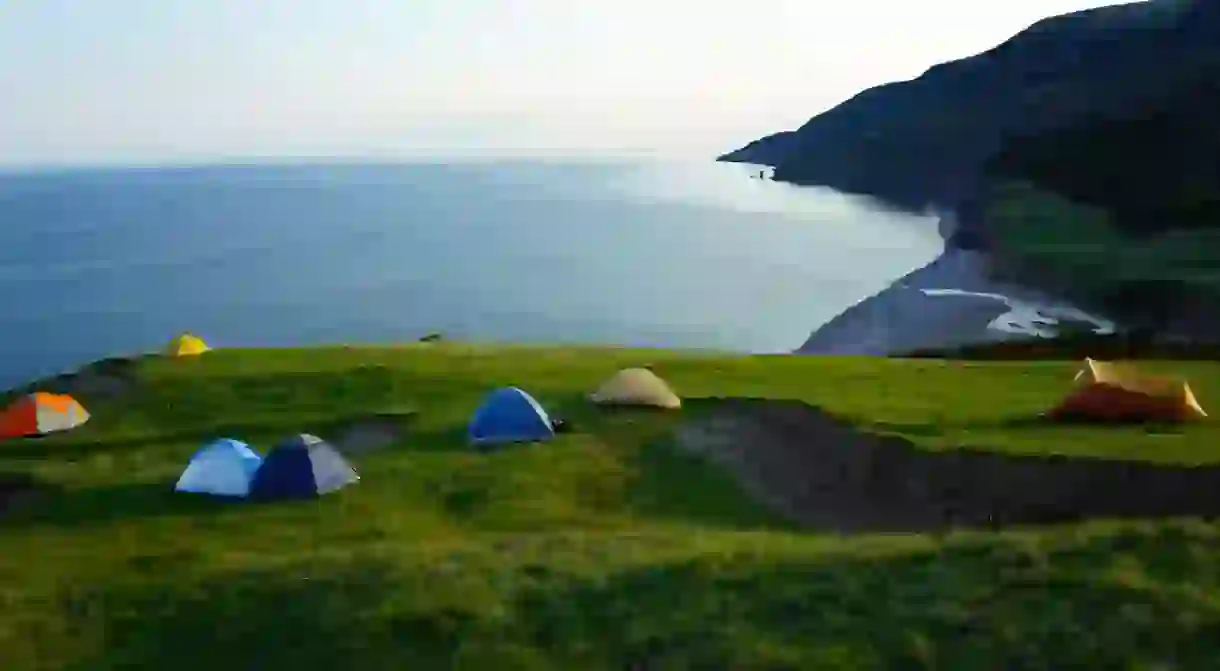13 Tips for Backpacking in Canada

Canada is a big country – and an expensive one at that. It takes a lot of work to budget for a trip across the country, but for backpackers, the reward will be amazingly unique cities and breathtaking landscapes. Here are the best tips for backpacking on a budget in beautiful Canada.
Choose your top destinations
Canada is the second largest country in the world, so it’s obviously going to be very expensive to see every national park and every major city. For example, flying from Vancouver to Toronto will take over four hours. So the best idea is to choose your top destinations – the places you can’t miss – and work around that. Can you live without seeing Nova Scotia? Will you be truly disappointed if you skip the Canadian Rockies? Choosing either Western or Eastern Canada is also very cost effective.

Look at flying alternatives
Although flying is quick, especially in a big country like Canada, it isn’t cheap. There are no Easyjet, Ryanair or Jetstar airlines with consistently ridiculous low-cost deals. VIA Rail is the national train service, which will slowly take you across the country inexpensively. There are also bus options, including Greyhound, Boltbus, and Megabus; buses are a great way to travel on a budget. If traveling as a couple or in a group, hiring a car may also work out to be a good option.
Ski on a budget
Canada has some of the top ski resorts in the world, such as Whistler Blackcomb. There are ways to ski on a budget if this is an experience on your bucket list. Tips include looking out for ski packages, staying off the mountain at nearby ski towns, and buying lift passes online. Visiting out of season (before or after the Christmas break) is an easy way to save money too.

Stay in hostels
Backpackers will find hostels not only in all urban cities but also in more rural areas that receive a lot of visitors, like Churchill. Fortunately, dorm bed rates usually begin from CAD$30 (US$23) a night and include free extras, such as breakfast and WiFi. An HI Hostels Membership gives you at least a 10% discount at their hostels, plus savings on buses, food, and activities worldwide.
Free walking tours
Walking tours are a fantastic way to learn about a city from a local. Plus, all you have to do is tip the guide at the end. Tour Guys has different tours established in Vancouver, Toronto, and Ottawa. But you will also find free walking tours in other major Canadian cities, including Halifax, Montreal, and Quebec.

Get gas from Native Reserves
If driving around Canada, the best and cheapest place to purchase gas is from Native Indian Reserves on First Nation land. Rez Gas is a great website for finding your closest reserve. By buying gas at these locations, you are also supporting local communities, so it’s a win-win solution.
Rideshare networks
Speaking of driving, an alternative cheap transport option is ridesharing. This concept is definitely becoming more popular; someone posts where they’re driving, and you can hitch a ride, as long as you put in some money for gas. Websites like Kijiji and Craigslist have rideshare tabs, or there are specific rideshare websites, such as Share Your Ride and Kangaride.

Couchsurfing
Couchsurfing, where you can sleep on someone’s couch or spare bed for free, is a great way to save money and meet locals in Canada. Even if you don’t want to sleep in a stranger’s house or apartment, there’s the option to meet a local and learn some insider tips, or you can head to an event hosted by Couchsurfing.
Free festivals
When visiting a city or region in Canada, make sure you check out festivals happening in the local area. Particularly in the warmer months, Canadians like to enjoy the outdoors as much as possible, so there are lots of free events planned. In Vancouver, for example, there are firework festivals, jazz performances, and weekly markets. Ottawa hosts a tulip festival in May and the biggest free street party in Canada each summer.

Parks Pass
If driving and visiting several national parks in Canada, it may be beneficial to purchase a Parks Pass, which allows discounted access into the various national parks. To celebrate the country’s 150th birthday, the Discovery Pass is free for 2017.
Camping
Another cost effective accommodation option is camping. There are a lot of excellent campgrounds across the country, which will set you back between CAD$10–30 (US$7.50–22.50) per night. It’s best to reserve a campsite as early as possible; campgrounds fill up fast in peak season. In Canada, there are campgrounds beside beaches, in the mountains, and close to metropolitan areas.

Shop local
The best way to save money in Canada is by preparing meals in a kitchen and limiting dining out. Check out local farmer’s markets and Asian supermarkets (like Vancouver’s Sunrise Market), which always have cheap and fresh produce available. Fortunately, most hostels have kitchen facilities available too.
Travel in the off-season
For discounted rates and fewer crowds, avoid backpacking in Canada in the peak of summer (June to August) and winter (December and January). Visiting in fall (September to November) is a good option, as the summer crowds have left but the weather isn’t too cold yet. But if you want to enjoy winter in Canada outside of peak season, many ski resorts are still open in spring, around March.













